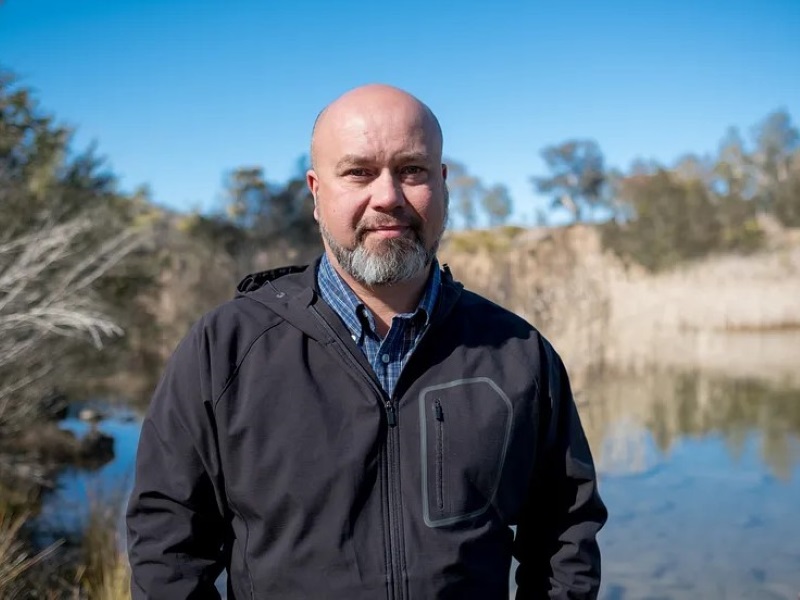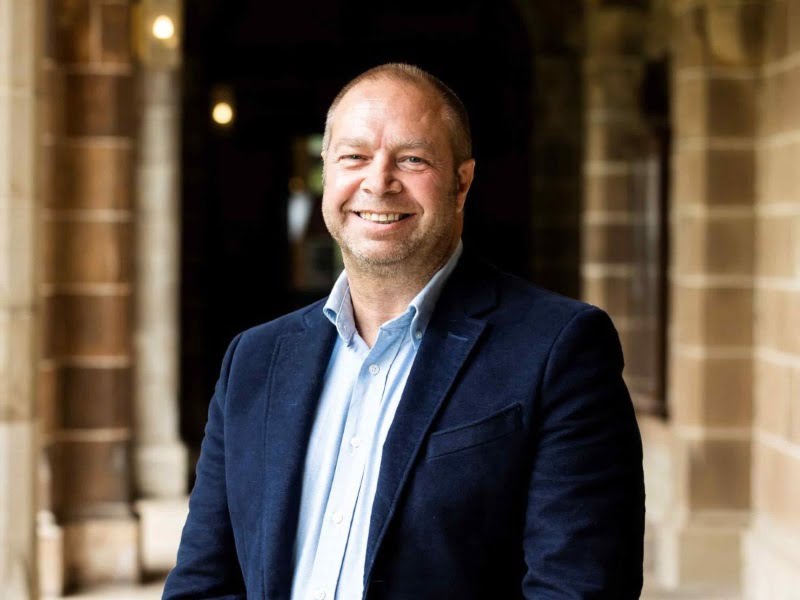Indigenous researchers are buoyed by the Albanese government’s landmark elevation of First Nations knowledge in national science priorities, but say action must match the aspiration to drive change.
After campaigning in opposition for more recognition and utilisation of 65,000 years of knowledge, Science minister Ed Husic this week took action. On the advice of the chief scientist, he made the “elevation of Aboriginal and Torres Strait Islander knowledge systems” a national science priority for the first time.
One of five new priorities, Indigenous knowledge sits in between and throughout the other four in the new national plan, and comes with explicit targets for the next decade like a culturally safe research system, preserving knowledges and promoting bilingual education.
“That’s pretty courageous for a government to do that, and a chief scientist,” said UTS Professor Bradley Moggridge.

Professor Moggridge is a Kamilaroi man and water scientist who successfully campaigned for Indigenous Knowledge to be included in Australia’s National Science and Research Priorities after it had been omitted from a draft version last year.
The refreshed priorities, which he launched alongside the government last week, are the first update since the Abbott government’s in 2015 and signal where resources will go and where stakeholders should work together.
Adding Indigenous knowledge systems puts a new lens on some of the most pressing threats to Australia, including other national priorities like emissions reduction, biodiversity protection and community health.
Professor Moggridge said for the first time there are signs Indigenous knowledge is being “respected in its own right”.
“Where my push has come from is making sure our knowledge is seen as an equal, not as a lesser,” he told InnovationAus.com.
“It is proven. My ancestors were doing science before science was even a word… We we’re testing the environment, adapting, mitigating, changing, replicating and ultimately surviving on the driest inhabited continent on Earth.”
This knowledge has not been well integrated into extractive western systems, he says, despite Indigenous communities and scholars’ efforts.
“Mob might engage, or they might not. They might have been burnt before. They might engage, build up a relationship, start sharing some knowledge, and all of a sudden, that researcher goes away. [They] potentially get a a paper or a masters or a PhD, all on Indigenous knowledge.
“And I’ve seen that too many times where non-Indigenous people have, you know, rorted the system. They’ve benefited from Indigenous knowledge, made a living from Indigenous knowledge, and obviously become a voice for Indigenous knowledge. And that’s the space that we need to shift from. That paradigm has that has to change.”
The new science priorities present the latest opportunity but must come with action, according to University of Melbourne Deputy Vice-Chancellor (Indigenous), Professor Barry Judd.
He says the recognition will shine a light on the rich potential of First Nations knowledge to address major global challenges, and agrees a commitment in the Priorities to make Indigenous communities equal research partners is overdue.
“We must ensure Aboriginal and Torres Strait Islander peoples lead research that affects them – as community leaders, traditional knowledge holders or researchers. There is huge potential for Indigenous-led research to address complex issues facing Indigenous communities,” Professor Judd said.

But moving from aspirations to concrete actions will take resources and structural change, according to Professor Barry, who holds a masters in Public Policy and a PhD in Australian Indigenous Studies.
“The priorities need to be accompanied by investment to boost the ability of institutions to attract, nurture and retain Aboriginal and Torres Strait Islander researchers,” he told InnovationAus.com.
“The Indigenous STEM pipeline needs urgent attention.”
Aboriginal and Torres Strait Islander Peoples represent around four per cent of the total Australia population but account for less than one per cent of the country’s academic population and are similarly underrepresented in university qualifications for science, technology, engineering and mathematics.
“We need a national strategy aimed at attracting and retaining more First Nations students within STEM disciplines throughout the entire educational system,” Professor Judd said.
“We also need to dedicate resources to empower First Nations communities to become equal research partners.”
Professor Moggridge agrees sustained investment must now follow to provide more equitable access to grants, elevate Indigenous knowledge and research in institutions like Centres of Excellence and science networks.
He says the Albanese government and Mr Husic have taken the bold step and must continue to lead and brace for blowback from critics.
“We’ve got to a point where Indigenous scholars need to be protected in this space, but also the government has to be the lead. They’ve done this [priority], the chief scientist is there supporting it and pushing it and engaging in it. That’s fantastic — leading by example — and the minister’s owning it.
“It’s then got to get down to the departmental level, and then obviously comes down to the funding sources.”
Do you know more? Contact James Riley via Email.

